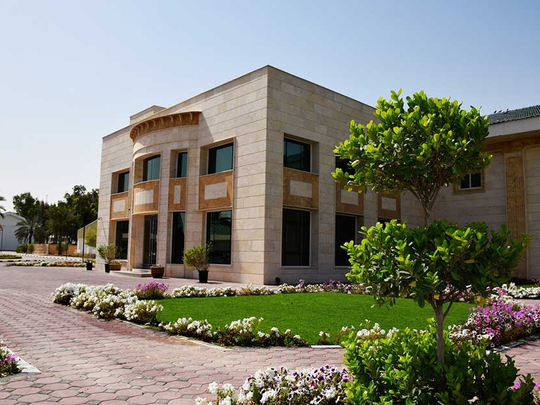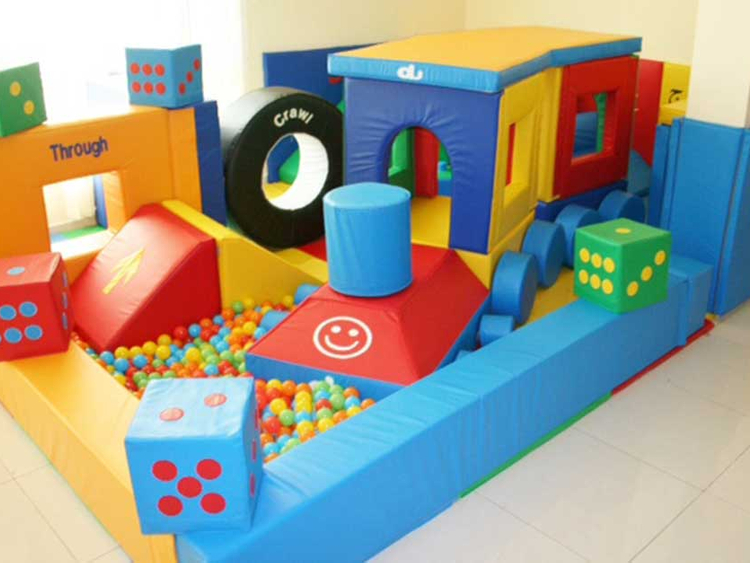
Dubai:
“Each year has had it is own challenges, success, and new outcomes of learning and experiences from our respected clients. We strive to serve them and offer them the required support. On the other hand, we are inspired by their battles and aid their success stories. Also we have found there is an increase in client numbers seeking help which indicates that DFWAC is well known, close and trusted among local and non-local communities which also indicates the increment in awareness level within community members.”
Afra Al Basti, Director-General of DFWAC
The DFWAC supports individuals and internal clients (those who are under its shelter) and those who seek help from it externally. It offers social, psychological and legal support.
Once the women become members, they are assigned to one of 11 social case managers who are in charge of managing the support plan for them. A counsellor can join the case manager to provide psychological help.
Apart from legal services wherever required, the foundation also provides financial support and social training, recreational activities, support groups, and work on empowering victimised women.
Amna Ibrahim Al Mutawa, a counsellor at DFWAC, said the foundation’s services have been expanded to reach even the category of elderly women (above 60) who might be experiencing violence or don’t have a shelter.
“These elderly women are sometimes kicked out of the house by their children, husband or other family members. We put a target to even accommodate people with mental disorders — some women don’t have access to mental institutions because of lack of space. They could be being abused and need help. These expansions began in 2015 and we are working to accommodate more of these clients.”
REHABILITATION
1) Psychological counselling
Highlights
Women who seek divorce are empowered to continue with their education and find job
Pre- and post-divorce counselling
Home visits after leaving DFWAC to ensure client’s safety
The counselling covers individual therapy for external clients of domestic violence, family therapy and couple therapy (for those who plan to return to their spouses).
“Victims suffering from psychological trauma or post-incident trauma are assisted. If clients are suffering from any health problems, we refer them to our internal clinic, where a nurse can inspect them physically and emotionally and detect any improper pattern in their behaviours,” said Amna Ibrahim Al Mutawa, a counsellor at DFWAC.
Amna pointed out that there were many successful stories with clients who went back and rejoined their families after six counselling sessions. “The counselling helped them better communicate and detect issues ruining their relationship.”
Counselling is also done pre- and post-divorce, she added. “If living with the abuser is of risk for the wife and children, she can decide to file for a divorce and we can facilitate it for her. We follow up with victims and do home visits even after she departs, to make sure she’s safe.”
In other cases, if a woman insists on a divorce, she is being empowered to get an education, find a job and be ready to be independent. “After she has obtained all her goals, got the divorce, obtained her legal goals and rights from her spouse and is ready to depart, we support her through the process and make sure to rehabilitate her even before she leaves.”
Detaching themselves from the foundation can be challenging, Amna said, as they need to start a new life independently. The foundation receives its funds from the government and other entities.
2) Social counselling and rehab
Highlights
Children of DFWAC clients are helped in enrolling children in schools
With vaccinations
Tickets to travel back home
The foundation cooperates with other relationship managers to facilitate the services victims may need.
“A social relationship manager seeks to find if clients need any financial support, if they need help with a job, to travel back to their countries or if their children need to enrol in schools. Social relationship managers work outside the foundation to facilitate all services they need from registering their children, to obtaining their vaccination card, issuing passport for children, or adding women in the family book,” said Amna Ibrahim Al Mutawa, a counsellor at DFWAC.
She said most abusive men do not provide their children a passport and neglect the children from getting the required vaccination including a health card.
“Clients may need financial support even after leaving the foundation for furnishing their new home, tickets to travel back, or for other needs, and social relationship managers handle that.”
3) Legal services
Legal services fall under social services, Amna explained. “But this particular service offers legal counselling and consultation. In some cases, we provide free advocacy services as we are in contract with a legal office in Dubai who supports us. They have their own lawyers and take up some cases for free.”
Case Study
40-year-old woman
A highly educated woman, she had several educational degrees, including master’s and a doctorate.
Despite her qualifications, she was suffering at the hands of her parents as they controlled her life, criticised her choices and disallowed her from realising her own goals and needs.
The woman was experiencing a form of violence within the family context and was even forced to study majors she did not choose for herself.
When she reached 40, she decided to speak up for herself. She didn’t want to stay with them, [and] this falls under domestic violence.
“They criticised her choices, did not allow her to work in a job she wanted, was not allowed to have a bank account and was completely dependent on the allowance she was given by her parents. She studied something she didn’t want, couldn’t work in the field,” said Amna Ibrahim Al Mutawa, a counsellor at DFWAC.
The woman lacked many [coping] skills owing to her parents’ domineering attitude.
Following the counselling, she managed to handle her own issues and put a limit to what her parents can control.
“It was interesting to see how she later managed to take her own decisions. She found the field she wanted to work in, began getting her salary and opened her own account. Control falls under the loop of violence, and this woman was experiencing just that.”
“We managed to rehabilitate her and helped her obtain her rights,” said Amna. “She began to have her own belief and choices.”
The woman, following the counselling, managed to handle her own issues and put a limit to what her parents could control.
Case study
Woman abused by alcoholic husband
She left her house and sought refuge at DFWAC. She had many challenges that needed to be addressed. Finances, education of children, working on obtaining a divorce.
Such cases are empowered to seek divorce, find a job, said Amna Ibrahim Al Mutawa, a counsellor at DFWAC.
The DFWAC helps her with her goals, obtain a divorce, establish her legal goals and rights from spouse, get ready to rent a flat. She is supported all the way and even with her detachment from the foundation, so that she can completely make a new start. Once a month, she is asked to come for counselling in person or she is spoken to on the phone.












